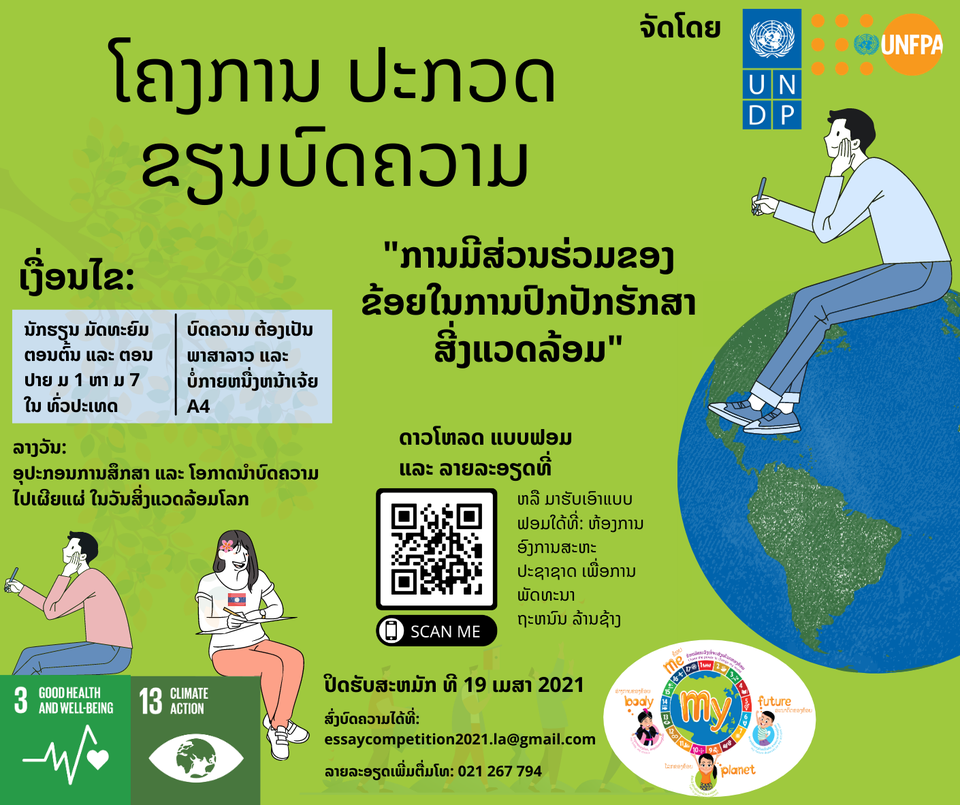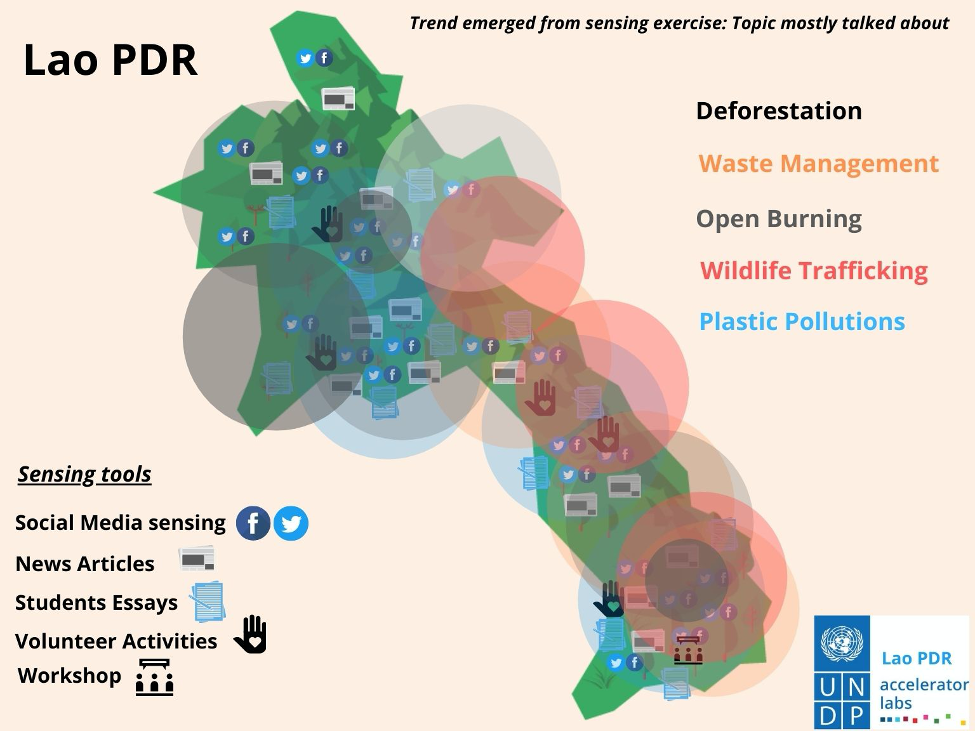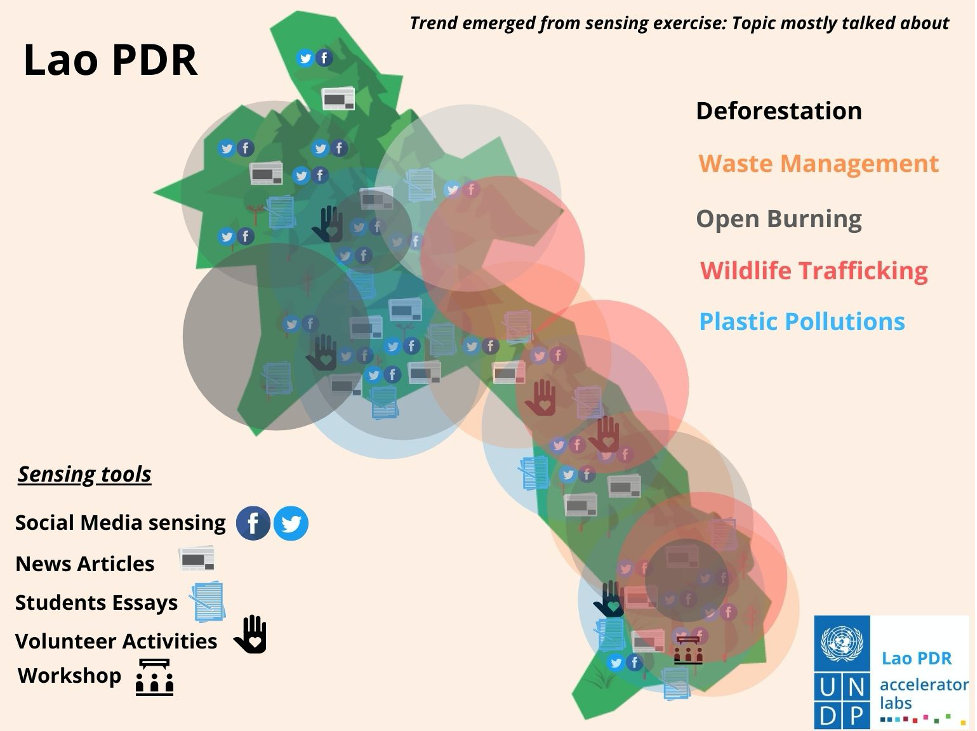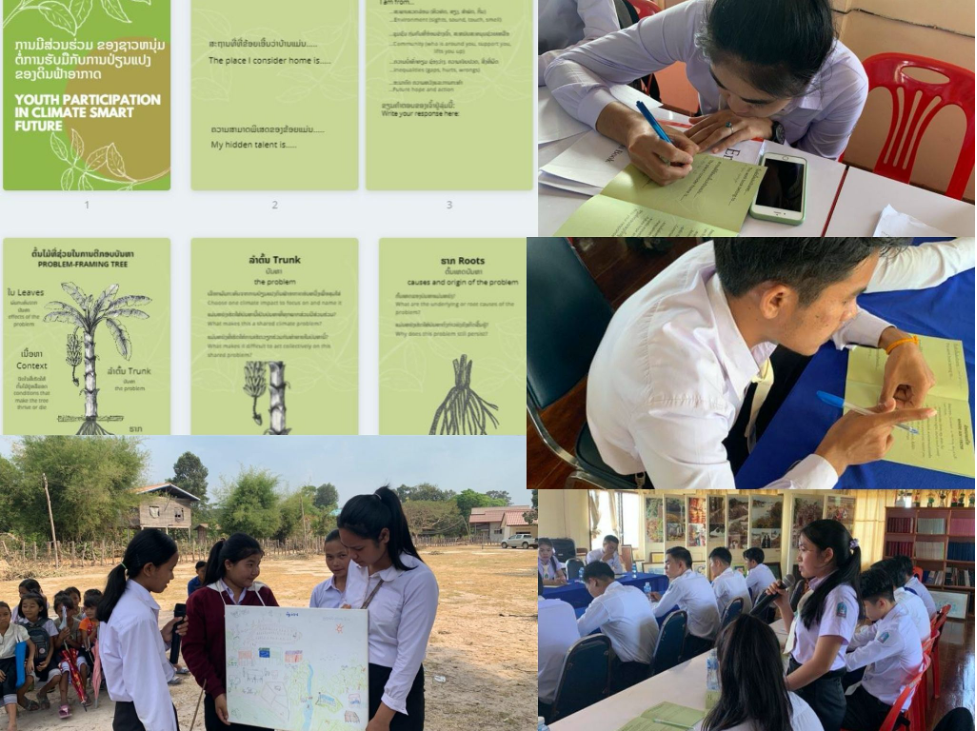This blog post reflects on an essay competition on the role of Youth in Climate Action jointly organized by UNDP and UNFPA in Laos, as part of a sensing exercise of the UNDP Accelerator Lab and a UNFPA led ‘Me, My Body, My Planet, My Future’ campaign to encourage young people to take action on the issues affecting them and their communities. This blog will also be part of the World Environmental Day Celebration Campaign #GenerationRestoration.

"[For me] to be able to appreciate the eco-system full of fauna and flora is an everyday celebration. I will do my best to restore what has been destroyed to prevent future damage to the environment." Kingphet Xayseuksa, a 14 year-old student from Xekong province, wrote in his essay.
Young people all across the globe have demonstrated their dedication to act on climate change. World leaders were previously startled by Suzuki's strong speech in Rio in 1992, and are now again taking constructive steps as a consequence of Thunberg's selfless actions along with her global allies in 2018. Young people have indeed realized their roles in advocating for the future they deserve. Their commitment has grown more robust, and their voices echo even louder.
In Laos too, the enthusiasm of youth in improving the environment they live in is growing. Youth-led organizations have stepped up to their place on the environmental stage and carried out a variety of initiatives. Notable actions include climate change awareness and clean-up drives in communities and along rivers and Youth4SDGs conference organized by Zero Waste Laos with support from UNFPA. Others range from a network of environmental task forces nationwide, to a more formal approach like an environment club at a school organized by one of UNDP Lao PDR's Circular Economy award winners. The UNDP Acceleration Lab (the Lab) in Laos recognizes the relevance of local participation, especially through collective intelligence and solution mapping. As a result, UNDP and UNFPA jointly held an essay contest to raise awareness on the environmental concerns in young people's communities and to embrace local solutions to climate change.UNFPA recognizes that climate change will affect young people in all aspects of their lives. It hampers their access to reproductive and sexual health services, food, nutrition, sanitation, education, and will threaten their holistic development. UNFPA works with young people to equip them with health, education, and skills to address the climate change issue and encourage them to take action.
This essay competition was co-designed by UNDP and UNFPA by building on UNFPA’s ‘Me, My Body, My Planet, My Future Campaign’ that aims to encourage and engage adolescents and young people to take actions for the sustainable development goals.
Laos has a young population, with nearly 60 percent under the age of 25 years. This represents an opportunity for a potential demographic dividend. Thus, further highlights the need for investment in education and empowerment of adolescents and young people to reach their full potential and continue proactive work on climate adaptation and mitigation. During this collaboration,UNDP and UNFPA also took into account the location, gender, background, and accessibilities in our eligibility and grading criteria, to ensure an inclusive approach.
What did we learn?
The entire competition lasted six weeks from mid-March to early-May 2021. Here is what we have learned so far:
1. It's not about winning a prize, but about seizing a platform
The day after we announced our essay contest via social media and school visits, numerous students and teachers from various provinces called and emailed to express their interest in the competition. Leaving aside the award, students and instructors agreed that the platform for exchanging ideas is more appealing. With a nationwide essay competition on environmental action occurring just once in a while, we observed that our activity responds a desire of the public, and particularly of Youth, to express their views and concerns about climate change.
2. A new old way of sensing
We received more than 80 high-quality essays from 20 schools. These writings are crucial for UNDP in terms of solutions mapping and sensing. Particularly for our climate change portfolio as seen in figure 1 and 2 as below. This essay competition allowed more narrative flexibility for participants to actively voice issues and provide solutions.
We discovered that students in the North are more concerned about open burning and wildlife trafficking. Students from the Center and South have similar views on deforestation, plastic pollution, and insufficient waste management.
Reading the essays helped us to see how students are impacted personally. Their insight and proposed solutions will continue to assist us in identifying the most appropriate and inclusive approaches in the development of future programmes.

Figure 1: Environmental trends and discussion in Laos emerged from sensing exercise from November 2020 – March 2021

Figure 2: Solutions proposed by students through the essay contest indicating the need for system approaches.

Youth participatory Workshop on Climate Action helps us understand perceptions of young people on environmental issues. It also empowers students to raise their concerns on environmental issues.
Takeaways:
This essay competition took us on an exciting journey where we discovered that providing a platform for local students to speak is a positive means of engagement; it also identified an opportunity for us to rethink traditional forms of awareness-raising, which are generally centralized and leave out local practices and perceptions.
Globally, local solutions and traditional knowledge are required to combat the impact of climate change. Last year, the Lab, in collaboration with Hyundai, launched a platform named “For Tomorrow” for local innovators to exchange local ideas, resulting in a large network of disruptive innovators.
This essay competition is small in scope. But it has paved the road for young people to realize the potential of their impact and began a dialogue on a topic close to their hearts, "the sustainability of this planet."
************
UNFPA, the UN's sexual and reproductive health agency, works in over 150 countries including Lao PDR, to achieve zero maternal deaths, zero unmet need for family planning and zero gender-based
Jointly Written by:
Mr. Khavi Homsombath, Head of Experimentation, UNDP Lao PDR
Ms. Phetmany Viyadeth, Communication Consultant, UNFPA


